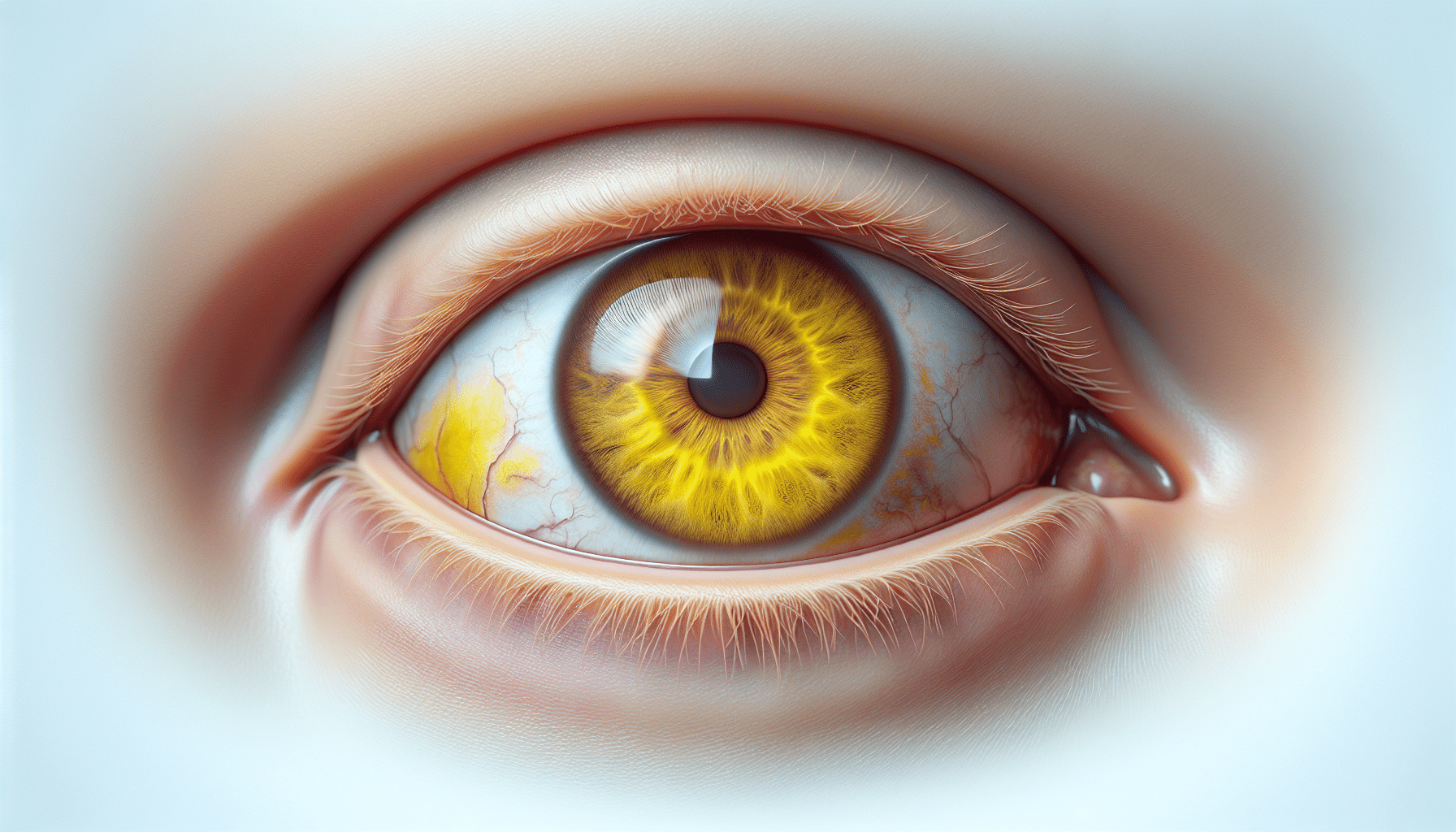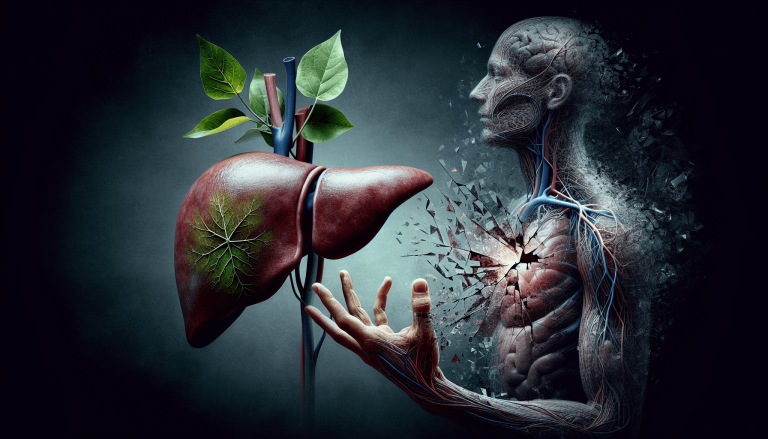What Is The Number One Symptom Of Liver Failure?
Hey there! When it comes to understanding liver failure, recognizing the key symptom can make all the difference. In this article, titled “What Is The Number One Symptom Of Liver Failure?” you’ll uncover that jaundice, the yellowing of your skin and eyes, often stands as the most apparent sign. Learning about this critical symptom can steer you toward timely medical help and a deeper awareness of your liver health. So, let’s dive in and gain some valuable insights together! Have you ever wondered about the nuances of liver health and the early signs that might indicate a problem? If you’re like many, the thought of liver failure can be daunting and confusing. Liver failure is a serious condition that demands immediate attention, and understanding its symptoms can be lifesaving.
The Liver: An Overview
Before diving into liver failure specifics, let’s establish a fundamental understanding of the liver and its crucial role in your body. The liver is one of your body’s largest and most vital organs. Situated in the upper right portion of your abdomen, it performs a myriad of essential functions.
Functions of the Liver
Let’s delve into the liver’s major responsibilities:
- Detoxification: The liver filters harmful substances from your blood, including drugs and alcohol.
- Metabolism: It plays a pivotal role in carbohydrate, protein, and lipid metabolism.
- Storage: The liver stores essential vitamins and minerals like vitamins A, D, E, K, and B12.
- Production: It produces bile, which aids in digesting fats, and essential proteins, including those necessary for blood clotting.
These diverse functions underline why the liver is indispensable for maintaining overall health and well-being.
Understanding Liver Failure
Now that we’ve established the liver’s importance, let’s explore what liver failure entails.
What is Liver Failure?
Liver failure occurs when the liver extensively loses its ability to function adequately. It can be categorized into two types: acute liver failure and chronic liver failure.
- Acute Liver Failure: This is a rapid onset condition that can happen within days or weeks. It is often caused by a drug overdose, such as acetaminophen, or severe infections.
- Chronic Liver Failure: This develops over several months or years due to chronic liver diseases like cirrhosis, hepatitis, or long-term alcohol abuse.
The Number One Symptom
Identifying the primary symptom of liver failure can be challenging due to the overlapping signs of various liver diseases. However, the most prominent indicator is jaundice.

Jaundice: The Hallmark of Liver Dysfunction
Jaundice is the number one symptom often associated with liver failure. It occurs when there’s an excess accumulation of bilirubin in your body. Let’s look deeper into jaundice and why it serves as a crucial red flag.
What is Jaundice?
Jaundice is characterized by a yellowing of the skin and the whites of your eyes. Bilirubin, a yellow pigment, builds up in the body due to its reduced breakdown or removal, leading to jaundice.
Why Does Jaundice Occur?
Jaundice results from a malfunction in the liver’s ability to process and excrete bilirubin. The reasons include:
- Reduced Bilirubin Uptake: When liver cells are damaged, they can’t efficiently take up bilirubin from the blood.
- Impaired Conjugation: The liver may fail to conjugate bilirubin, rendering it unexcretable.
- Obstructed Bile Flow: Gallstones or tumors can obstruct the bile ducts, preventing bilirubin from being excreted.
Symptoms Associated with Jaundice
Besides the characteristic yellowing, jaundice often comes with additional symptoms, including:
- Dark Urine: This occurs because excess bilirubin is excreted through urine.
- Pale Stools: Bilirubin imparts the stool’s brown color. Blocked excretion leads to lighter-colored stools.
- Itchy Skin: Accumulation of bilirubin under the skin can induce itchiness.
Identifying jaundice early on can be pivotal in diagnosing liver failure promptly.
Other Symptoms of Liver Failure
While jaundice is a prominent symptom, several other signs accompany liver failure. Let’s explore these secondary symptoms.
Swelling and Fluid Accumulation
Your liver plays a key role in regulating the levels of many substances in your bloodstream. When it fails, an imbalance can lead to fluid retention.
Ascites:
Ascites refers to the accumulation of fluid in the abdomen, leading to noticeable swelling. It occurs due to increased pressure in the liver blood vessels and reduced production of albumin, a protein that helps maintain blood volume.
Edema:
Edema might occur in your legs and ankles, caused by the same pressure and protein issues.
Fatigue
A failing liver struggles to filter toxins efficiently. This can affect your brain function and lead to substantial fatigue, confusion, and even coma in severe cases.
Digestive Issues
The liver aids in digestion by producing bile. When it fails, you might experience nausea, vomiting, and loss of appetite due to decreased bile production.
Bleeding and Bruising
The liver is responsible for producing clotting factors. When it’s compromised, you may bruise more easily and have prolonged bleeding from cuts or other injuries.
Encephalopathy
Liver encephalopathy occurs when liver failure leads to a buildup of toxins in the brain. Symptoms range from mild confusion and forgetfulness to severe personality changes and coma.
Hepatic Coma
Severe liver failure can lead to hepatic coma, a medical emergency characterized by loss of consciousness and responsiveness.
Itchy Skin
Pruritus, or severe itching, is another symptom due to bilirubin buildup. This can be frustrating and disturbing, impacting your quality of life.

Causes of Liver Failure
Now that you’re familiar with the symptoms, understanding the underlying causes of liver failure can provide a clearer picture.
Hepatitis
Hepatitis, especially hepatitis B and C, is a significant cause of chronic liver disease and failure. It results from viral infections that induce liver inflammation.
Alcohol Abuse
Long-term heavy alcohol consumption can lead to alcoholic hepatitis or cirrhosis, culminating in liver failure.
Nonalcoholic Fatty Liver Disease (NAFLD)
NAFLD stems from fat accumulation in the liver and is linked to obesity and type 2 diabetes.
Autoimmune Diseases
Conditions like autoimmune hepatitis cause your immune system to attack healthy liver cells, leading to inflammation and damage.
Genetic Diseases
Genetic disorders such as Wilson’s disease and hemochromatosis interfere with the liver’s functioning by causing abnormal protein or mineral accumulation.
Medications and Toxins
Overconsumption of acetaminophen or exposure to toxic substances can trigger acute liver failure.
Cancer
Liver cancer or metastasis from other cancers often compromise liver function.
Obstruction
Gallstones or liver cysts obstructing bile flow can cause liver failure.
Acute Complications
Issues like septicemia or heart failure can precipitate acute liver failure by interrupting the liver’s blood supply.
Diagnosing Liver Failure
Medical History and Physical Examination
Blood Tests
Liver function tests (LFTs) reveal the levels of liver enzymes, which can indicate inflammation and damage. Bilirubin levels, clotting tests, and other markers are also measured.
Imaging Studies
Ultrasound, CT scan, and MRI provide detailed images of the liver’s structure to identify abnormalities.
Liver Biopsy
In some cases, a small sample of liver tissue is taken for microscopic examination to determine the extent of damage or disease.
Treatment for Liver Failure
Acute Liver Failure Treatments
- Hospitalization and Monitoring: Close monitoring in an intensive care unit (ICU) for vital signs and liver function.
- Medications: To counteract poisoning or infections.
- Liver Transplant: In severe cases, a liver transplant might be needed urgently.
Chronic Liver Failure Treatments
- Medications: To manage symptoms and slow disease progression.
- Lifestyle Changes: Adopting a healthy diet, avoiding alcohol, and managing weight.
- Regular Monitoring: Frequent check-ups with a hepatologist.
Preventive Measures
Preventing liver failure is often synonymous with maintaining liver health. Here are some proactive measures:
- Healthy Diet: Consume a balanced diet rich in fruits, vegetables, lean proteins, and whole grains.
- Exercise Regularly: Engage in physical activity most days of the week.
- Avoid Alcohol Abuse: Limit alcohol consumption or avoid it entirely.
- Prevent Hepatitis: Get vaccinated against hepatitis A and B, practice safe sex, and avoid sharing needles.
- Medication Caution: Use medications responsibly and avoid excessive dosages.
- Regular Health Screenings: Early diagnosis and treatment of liver diseases can prevent complications.
Conclusion
Liver failure is a critical condition with potentially life-threatening consequences. Jaundice stands out as the number one symptom, but it’s crucial to remember that a spectrum of other symptoms accompanies liver failure. Awareness and early detection are key to managing liver health effectively.
Staying informed and proactive about your liver health can make a significant difference. Should you notice any signs of liver dysfunction, seek medical attention promptly. Your liver performs countless vital functions, and prioritizing its health ensures that it continues to support your overall well-being.
Additional Resources

Are you tired of feeling sluggish and unwell due to poor liver function?
Don’t wait until it’s too late to take care of your liver health. As you may know, poor liver function can lead to a range of serious health issues, including fatigue, digestive problems, and even liver damage.
Scientists have discovered an amazing hack that is designed to help anyone reach their healthy life with almost zero efforts. Find out more here…
Take control of your health today and discover the amazing solution that will change your life and bring back the joy in your life.
With our proven formula you’ll be blown away by the impact it can have on your life. But you will not hear about this breakthrough from your doc. Read more about this unseen liver regeneration miracle.






